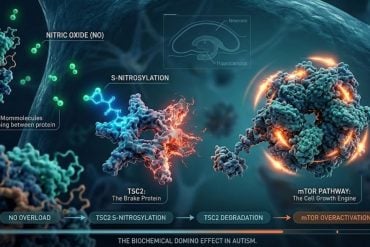Summary: A new study reveals that people across 12 countries and five continents perceive wisdom through two key dimensions: reflective orientation and socio-emotional awareness. Reflective orientation includes logical thinking and emotion control, while socio-emotional awareness focuses on empathy and social context.
These dimensions consistently influence how individuals judge wisdom in leaders, scientists, and others. The findings highlight the universal principles that shape perceptions of wisdom and their implications for leadership and education.
Key Facts:
- Wisdom is judged by two dimensions: reflective orientation and socio-emotional awareness.
- Reflective orientation involves logical thinking, emotion control, and knowledge application.
- Socio-emotional awareness includes empathy and sensitivity to social context.
Source: University of Waterloo
What makes someone seem wise? People view wisdom through the lens of applying knowledge and thinking logically as well as considering others’ feelings and perceptions, finds a new study led by University of Waterloo researchers who looked at perceptions of wisdom across 12 countries and five continents.
Researchers examined the underlying principles guiding who we perceive as wise in political leadership, science, and daily life. Across different cultures, participants’ judgements converged on two dimensions: reflective orientation and socio-emotional awareness.

Reflective orientation includes characteristics such as thinking logically, emotion control and application of knowledge. Socio-emotional awareness includes characteristics like care for other’s feelings and attention to social context.
“To our surprise, the two dimensions emerged across all cultural regions we studied, and both were associated with explicit attribution of wisdom,” said Dr. Maksim Rudnev, a postdoctoral research associate in psychology at Waterloo and lead author.
The study suggests how people around the world might judge, support and trust leaders, educators and others in positions of influence. One example is how people view U.S. former president Donald Trump and current president Joe Biden.
“While both dimensions of wisdom work together, people associate wisdom more with the reflective orientation. If someone is viewed as not able to reflect and think logically, then perceptions of them as socio-emotionally competent and moral won’t compensate,” said Dr. Igor Grossmann, the senior corresponding author and the director of the Wisdom and Culture Lab at the University of Waterloo.
“You could see it in the immediate aftermath of the infamous Trump-Biden 2024 presidential debate: both candidates did not appear reflective, yet Trump seemed to have won the debate with many viewers perceiving Biden as socio-emotionally well-meaning but cognitively frail.”
The collaboration among 26 research institutions was coordinated by the Geography of Philosophy consortium and included researchers from North and South Americas (Canada, U.S., Ecuador and Peru), Asia (China, India, Japan, and South Korea), Africa (Morocco and South Africa), and Europe (Slovakia).
The study involved 2,707 participants from 16 socio-economically and culturally diverse groups. They were prompted to compare 10 individuals, including scientists, politicians, and teachers, in the context of making a difficult choice in a real-life scenario without a clear right or wrong answer.
The participants were then asked to rate the degree of wisdom of these individuals and themselves. The data was analyzed to identify underlying dimensions governing perceptions of wisdom among individuals and between groups.
“Interestingly, our participants considered themselves inferior to most exemplars of wisdom in regard to reflective orientation but were less self-conscious when it comes to socio-emotional characteristics,” Rudnev said.
“Understanding perceptions of wisdom around the world has implications for leadership, education and cross-cultural communication. It is the first step in understanding universal principles in how others perceive wisdom people in different contexts.”
About this social neuroscience and psychology research news
Author: Ryon Jones
Source: University of Waterloo
Contact: Ryon Jones – University of Waterloo
Image: The image is credited to Neuroscience News
Original Research: Open access.
“Dimensions of wisdom perception across twelve countries on five continents” by Maksim Rudnev et al. Nature Communications
Abstract
Dimensions of wisdom perception across twelve countries on five continents
Wisdom is the hallmark of social judgment, but how people across cultures recognize wisdom remains unclear—distinct philosophical traditions suggest different views of wisdom’s cardinal features.
We explore perception of wise minds across 16 socio-economically and culturally diverse convenience samples from 12 countries. Participants assessed wisdom exemplars, non-exemplars, and themselves on 19 socio-cognitive characteristics, subsequently rating targets’ wisdom, knowledge, and understanding.
Analyses reveal two positively related dimensions—Reflective Orientation and Socio-Emotional Awareness. These dimensions are consistent across the studied cultural regions and interact when informing wisdom ratings: wisest targets—as perceived by participants—score high on both dimensions, whereas the least wise are not reflective but moderately socio-emotional.
Additionally, individuals view themselves as less reflective but more socio-emotionally aware than most wisdom exemplars.
Our findings expand folk psychology and social judgment research beyond the Global North, showing how individuals perceive desirable cognitive and socio-emotional qualities, and contribute to an understanding of mind perception.






